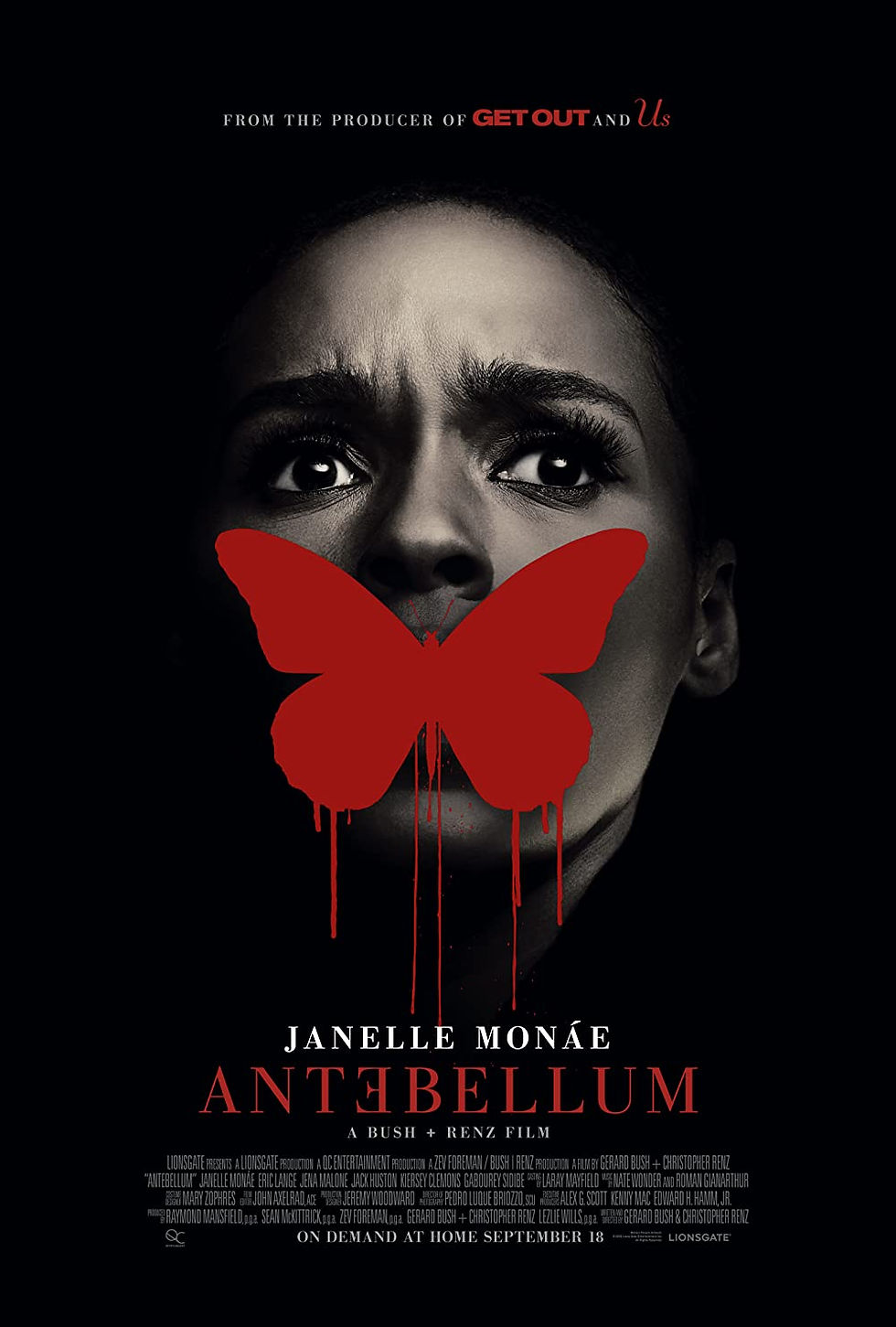Antebellum
- Young Critic

- Sep 14, 2020
- 3 min read
Rich Symbolism Highlights Important Themes If At the Cost of the Larger Narrative

It says a lot about the world, and specifically of America, in seeing how many films about slavery have been made in comparison to those of the Holocaust. Both were horrific events that should never be forgotten so as to not be repeated, and yet the Holocaust has been given much more attention in Hollywood films (the attention completely justified) whereas slavery has been relegated to few and far between art house films. Hopefully with the rise of racial protests around the world, pressure will build on making more of these films. In the meanwhile, Antebellum (2020) has arrived bringing a creative spin in exploring the legacy of slavery.
Antebellum has multiple twists and turns in its narrative, thus in order to not spoil much, I will keep the plot description to a minimum. We follow two seemingly connected stories, one is of a slave woman named Eve (Janelle Monáe) in a southern cotton plantation, the other is of an identical looking woman named Veronica (Monáe again) who is a famous author focusing on race relations living in present day America.
The film is the feature film debut of music video directors Gerard Bush and Christopher Renz. Music video directors have previously made successful jumps to the big screen, utilizing their capability of visual aesthetic and symbolism to help tell their stories. Filmmakers such as Spike Jonze, David Fincher, and Antoine Fuqua all came from this directors’ quarry have become some of the most creative and narratively groundbreaking voices in today’s cinema. Bush and Renz certainly bring a lot of promise with them, they are able to infuse a lot of symbolism in their film that helps bring about and convincingly present the themes and issues they want to explore. The main of these themes is that of the inherited stress and burden that slavery has imposed on current African Americans. The title itself is a reference among American historians of the pre-Civil War South. There is a clever comparison of the brutal cruelty of life on plantations and the ubiquitous racial microaggressions suffered by racial minorities today. This comparison made side by side makes the urgency of addressing the United States’ slave-past all the more urgent, as it can be seen to still be highly influential and harmful more than 150 years later.
This theme of the unaddressed past coming back to haunt and harm Americans is core to the film, which itself opens with William Faulkner’s famous quote: “The past never is never dead. It is not even past.” The symbolisms and issues presented in the first two acts of the film certainly do justice to this pursuit, bringing up the important questions Renz and Bush want to explore while also laying them out with clarity. However, it is in its finale that Antebellum crumble a bit.
Antebellum is extremely keen on exploring its social issues and utilizing a quasi-horror/sci-fi genre meld in order to navigate it. However, in being focused on producing a visually stunning and symbolically intriguing film, Bush and Renz forget to craft a convincing and cathartic personal story. The stories of Eve and Veronica are sketched out in the bare minimum of script expectations. Veronica’s character might be the more interesting of the two, largely thanks to enjoyable scenes between her and her girlfriends played by the fabulous (as always) Gabourey Sidibe and Lily Cowles. The lack of proper character crafting is further debilitated with a rather weak narrative and barebones plot, which when stripped of its social commentaries and visual style is seen as embarrassingly minimal.
Janelle Monáe is able to infuse a surprising amount of gravitas and charisma in the lead role(s). Monáe, more known for her music, has steadily been breaking into the acting profession, being impressive in small doses in Moonlight (2016) and Hidden Figures (2016). However, earlier this year she was given her first lead role in Amazon’s second season of Homecoming (2018-) and I was rather disappointed with her performance, she felt a little stale and out of her depth in the series. In Antebellum, however, the singer-actress proves to be a more than capable performer. Monáe fully commits to both her characters, allowing us to feel her pain and burdens, as well as finding a right balance in her acting style; neither too big nor too small.
In the end, Antebellum proves to be a rather creative in exploring the legacy of slavery and racism in America. Renz and Bush both prove to have promising cinematic careers ahead of them, as does Monáe as a leading lady. The narrative itself, however, betrays the film and shows its weaknesses with an unconvincing and dim final act. Renz and Bush seem to dive too much into spelling out their thematic intentions and completely forget about their characters’ journeys. Thankfully, the end result does leave powerful symbolisms and hopefully prompts further necessary discourse on the issues of race.
6.4/10








Comments